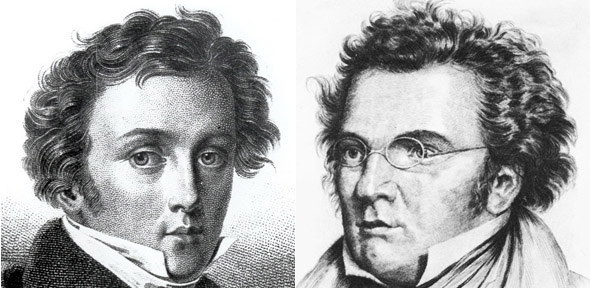
Faculty of Music - German Lieder
This course will not be offered this academic year.
Enrolment is through the Faculty.
Paper 11, Winterreise
Lecturers: Paul Hoegger (Michaelmas Term), Benjamin Walton (Lent Term)
Aims and Objectives
- To explore the ways that poetry and music work together in Schubert's Lieder
- To provide a detailed investigation of a single song cycle and its contexts
- To equip students with the necessary skills to consider song repertory from a variety of critical perspectives
- To encourage the study of song texts in their original language
Description of the course
This course investigates Schubert's great song cycle Winterreise, D.911 (1827), from a variety of perspectives, but begins from a single premise: that it is impossible to study the music of the work without a detailed understanding of the poems by Wilhelm Müller that Schubert set, and of the interaction between music and poetic text.
With this in mind, the course is divided into two parts. The first part (to take place in Michaelmas term) will be devoted to Müller's poems, to Schubert's setting of German, and to ways of approaching Lieder texts more generally. The first four classes will be introductory; students whose knowledge of German is equivalent to A-level or beyond are welcome to attend these classes, or can join the course for weeks 5-8. Anyone with German skills below A-level standard, or who took A-level, but have not studied the language recently, should attend from week 1.
The second part of the course (Lent term) will build on the material in the first half of the course to look at Winterreise as a cycle, and to study individual songs, as well as considering the piece in relation to Schubert's other late works, to the history of the Lied, to wider currents of musical and literary romanticism, and to its later reception and its performance history.
Description of the examination
The paper will last three hours. Candidates will be required to answer three questions from a broader choice. At least one of the three questions chosen must draw on material from the first half of the course.
Suggestions for preliminary study
The main preliminary study for the course consists of getting to know the music and poetry of the cycle as well as possible. Scores and recordings are widely available, as are English translations of the texts, though bear in mind that many of these are singing translations, and therefore not accurate renderings of Müller's texts. Richard Wignore's Schubert: The Complete Song Texts (London: Gollancz, 1988) offers a reliable set of translations.
Secondary literature on the cycle is extensive, and a detailed bibliography will accompany the second half of the course. Good introductions can be found in Laura Tunbridge, The Song Cycle (Cambridge: Cambridge, University Press, 2010), and in Susan Youens's chapter in Rufus Hallmark, ed., German Lieder in the Nineteenth Century, revised edition (New York: Taylor & Francis, 2010). But the best work to read in advance, for its consideration of both Müller and Schubert, remains Youens's Retracing a Winter's Journey: Schubert's Winterreise (Ithaca: Cornell University Press, 1991).
Guidance for students, Directors of Studies and supervisors
In order to take this course, students must have obtained a knowledge of German at least equivalent to the level reached on completion of the basic course run by the University Language Centre. Students with questions about their eligibility should contact Ben Walton (bw283@cam.ac.uk) before the start of the course.
Students must let Ben Walton know by 1 October if they plan to take this course, together with a description of their level of German ability, in order to facilitate organisation of Michaelmas term classes.
This course consists of sixteen lectures of 90 minutes, running through Michaelmas and Lent terms (as described above), one revision session in Easter term, and one three-hour examination. The Faculty of Music recommends that students receive four supervisions, in groups of three or four, during Lent term, together with a revision supervision in Easter term. Supervisions will not be required in Michaelmas term, during the language classes.


 The Language Centre
The Language Centre

